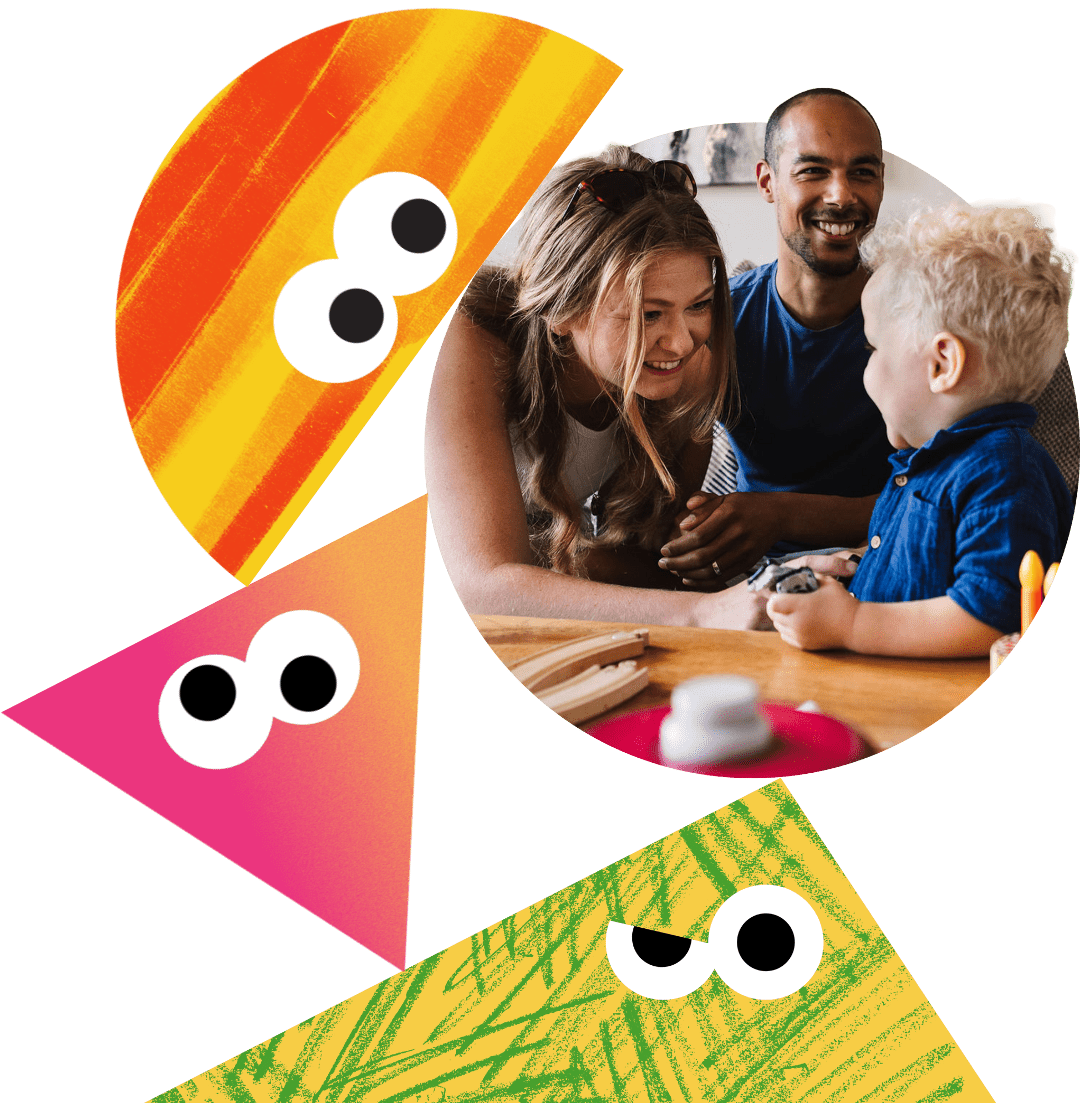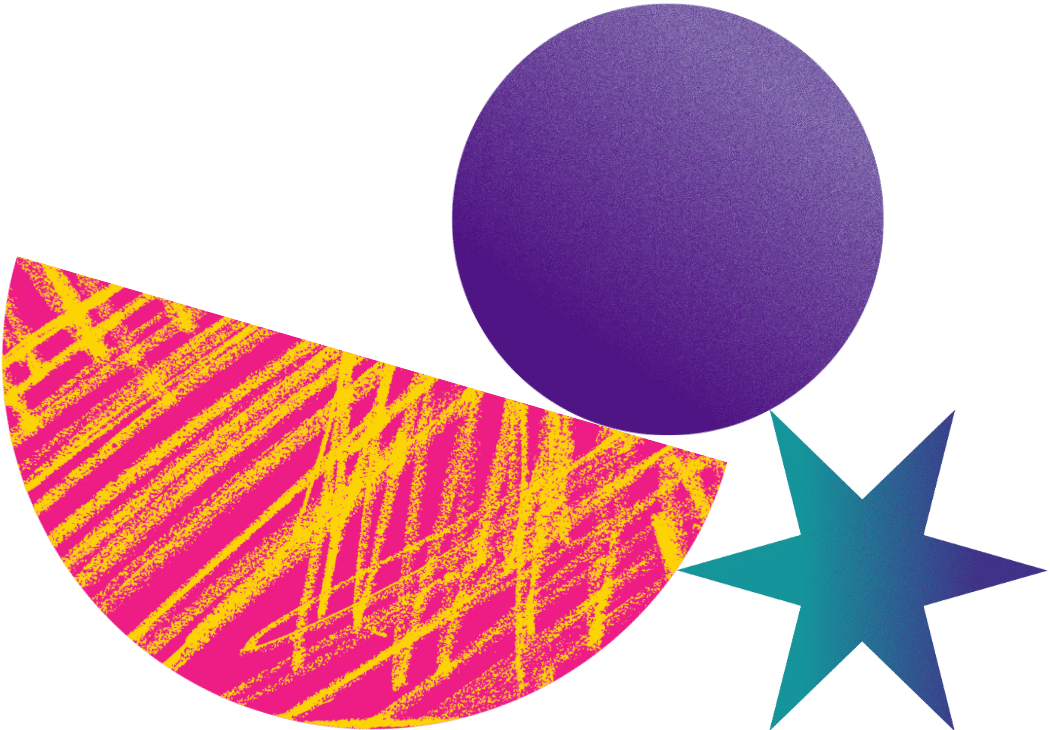Developmental and emotional milestones
Information for parents to use alongside the First Five Years.

Early years
Your child’s early years shape their lifelong emotional wellbeing. This guide shares key information about emotional and developmental milestones, helping you respond in ways that nurture relationships and support emotional health.
| Emotional milestones | Developmental milestones |
|---|---|
| Birth–4 weeks Baby getting used to life outside the womb – often quite disorganised – baby needs to feel calm, safe and have a routine. 4–6 weeks More settled – beginning to settle into regular pattern. 6 weeks to 3 months – May be starting to smile and will smile in response to a positive interaction with another person. – Starting to develop different cries and facial expressions that indicate when hungry, tired, uncomfortable or overwhelmed. – Enjoys looking at human face in particular parents or familiar adults. – Starting to vocalise more. 3–6 months – Smiling usually established. – Temperament becoming clearer. – Gradually becoming more aware of own feelings. – Enjoying the familiar and starting to anticipate regular events, such as sight of bottle prior to being fed. Separation Gradually able to tolerate small amounts of time away from parents. May be able to comfort self for short time but this is variable and there may be times when baby cannot do this particularly if he is frightened. Recognising others, mother, father, siblings, grandparents, aunts, uncles. By 6 months starting to recognise differences in familiar people. At times may be aware of strangers. 6–12 months Sleeping may change with altered sleeping arrangements e.g. move from parent’s room to separate room from around 6 months. | During the first year, babies’ bodies develop very fast. The nervous system becomes organised – the rate and level of this process seems at least partly related to the quality of the relationship between baby and parent. In general, babies gain control over their bodies from head to foot and from their centre outwards to arms and legs, and then their fingers and toes. First control is of eye muscles – focus 6–9 inches. From birth, babies are interested in looking at the faces of their parents. By 3 months babies respond by smiling. By 3 months will lift head and upper chest when prone using forearms to support. Grasps rattle for a short while. Hands move when distressed/excited at sound of approaching noise. 5–6 months: reaches for object – picks up with raking movement. 6–9 months: babies copy carers’ speech sounds . By 6–12 months: babies make various sounds – babbling, cooing, gurgling and laughing. At 9–12 months sits unsupported for 10–15 minutes; attempts to crawl. Increased capacity to recognise feelings such as joy and displeasure. Becomes more aware of being separate from parents. Recognising strangers and can react in a distressed way if stranger tries to interact too quickly. Starting to be able to distract themselves when things go wrong. More persistent in pursuing their own goals especially in play. Enjoys sharing games with parents and others. Laughter occurring more often when engaging in exciting interactions with parents and familiar adults. |
| 12 months Toddler begins to learn to separate emotionally from main parent and to develop own identity. 12–18 months Shows anxiety about separation from parent – tends to feel out of control of the situation and become more nervous and anxious. Not until 18–24 months can toddlers carry a picture of their loved ones in their mind. 18 months Key words are ‘me’, ‘mine’ and ‘no’ – begin to distinguish between ‘you’ and ‘me’. | Developing fine pincer grasp. Pulls to stand and by about 1 year most babies walk unaided. From 1 year becomes very active – gets into everything. Climbs on chair to reach something – stacks containers, starts to learn simple instructions. Has ‘mamma’, ‘dadda’ and 2 or 3 other words. Responds to own name and ‘no-no’ and ‘give it to me’. By 18 months has between 6-20 words, but understands more. Uses words to replace or accompany pointing. Drinks from cup with help. Chews. Holds spoon and tries to use. Puts wooden cubes in and out of cup when shown. Quickly finds hidden toy. Plays pat-a-cake, and waves ‘bye-bye’. Sits or stands without support while being dressed. |
| Two years Toddlers normally show extremes of behaviour between 2 and 3 years – very dependent/independent, very aggressive/calm, helpful/stubborn. More independent – gets angry when stopped from moving somewhere, tantrums common (cries desperately, kicks, bites, rough with other children). Begins to show feelings of pride, pity, sympathy. These feelings connect the child to himself and to others. Two-year-olds are usually aware of praise and smile. Needs a parent to tell him what is right and what is a ‘no-no’ – tone of voice important. First step in recognising right from wrong. Less fear of strangers. Fear of noises, thunder, trains, flushing toilets. Plays alone or alongside others but won’t share. Short attention span and easily distracted. Harsh parenting and smacking gets in the way of a child’s emotional development. Toddlers like routine and any changes upset them. | Runs, pushes and pulls large toys. Climbs on furniture and up and down stairs holding on to rail. Throws small ball overhead. Sits on small bike and scoots along with feet. Hand preference usually obvious. Enjoys picture books and recognises detail. Modifies pencil grasp, spontaneously scribbles to and fro and in a circular motion. Knows 50+ words and begins to form simple sentences. Talks to self. Names familiar objects and parts of body. Carries out simple instructions. Spoon-feeds well and chews competently. Verbalises toilet needs – may be dry in day. Enjoys imitating domestic activities. |
| Three years Play is the work of this age – focus on becoming confident and efficient. Quite balanced – normally happy and contented. Still self-centred and magical in thinking – believes wishes make things come true. Has imaginary friends who can be blamed when things go wrong. Bargaining works but reasoning does not. Distraction still works. Doesn’t get so frustrated and gets less angry when stopped. Biggest fear is that their parent will abandon them – especially at night. | Enjoys walking/climbing and running. Likes drawing/threading/play-dough and simple jigsaws. Begins to take turns, as a start to sharing. Large vocabulary mainly intelligible to strangers, but many ungrammatical forms persist. Able to follow instructions. Asks many ‘what, where and who’ questions. Listens eagerly to stories. Uses fork and spoon. Pulls pants/knickers up/down. |
Togetherness is here to support you at every stage of your parenting journey.
Our expert-led, online learning pathways offer insights into child development and emotional health, helping you build strong, connected relationships with your child.

